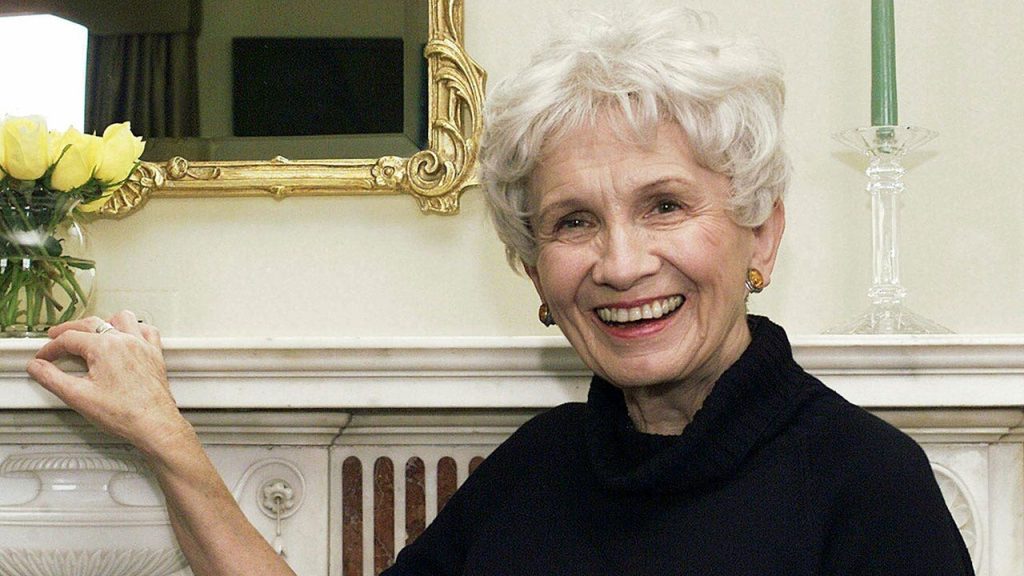Alice Munro, the Canadian literary icon and Nobel laureate, passed away at the age of 92 at her home in Port Hope, Ontario. Her works, including “Dear Life,” “Too Much Happiness,” “The View from Castle Rock,” and “The Love of a Good Woman,” gained widespread popularity. She won the Nobel Prize in Literature in 2013, becoming one of the world’s most esteemed contemporary authors and one of history’s most honored short story writers. Often ranked with Anton Chekhov and John Cheever, Munro achieved rare stature for a short story writer and was the first lifelong Canadian and exclusively short fiction writer to win the Nobel Prize. Her stories have been described as having the capacity to “accommodate the entire epic complexity of the novel in just a few short pages.” Over her career, Munro perfected the art of illuminating universal themes through particular details, creating stories set in Canada that resonated with readers worldwide.
Munro was not only acclaimed by critics and fellow authors but also enjoyed commercial success, with sales in North America exceeding 1 million copies. Her best-known works showcased her mastery of plot twists, humor, characterization, and insight into human experiences across age and background. Munro’s fiction often touched on themes of love, family dynamics, memory, and the passage of time. Her stories were often set in Canada, reflecting her own experiences and observations of life. Munro’s writing appealed to both literary audiences and the general public, earning her a spot on The New York Times’ bestseller list after being awarded the Nobel Prize. One of her most famous stories, “The Bear Came Over the Mountain,” was adapted into the film “Away from Her,” which received critical acclaim and an Academy Award nomination.
Munro was a pioneer for women and Canadian authors, breaking barriers and defying expectations with her storytelling. She was not overtly political, but her characters often grappled with the changing social norms and cultural shifts of the 1960s and ’70s. Munro’s personal life also mirrored the themes in her fiction, as she navigated relationships, marriage, motherhood, and personal growth. Despite initial challenges and obstacles, she continued to persevere and develop her craft over the years. Munro’s daughter described her mother’s fiction as “so unassailable is the truth of her fiction that sometimes I even feel as though I’m living inside an Alice Munro story.” Fellow Canadian author Margaret Atwood praised Munro for her contribution to literature and her ability to capture the complexities of human experience and emotion.
Alice Ann Laidlaw, born in Ontario in 1931, used her upbringing and personal experiences as inspiration for her stories. She grew up in a family that experienced shifts in economic status, which influenced her views on class and money. Munro’s childhood was marked by her love for literature and storytelling, which she pursued during her studies at the University of Western Ontario. Despite her early success as a writer, she struggled with self-doubt and fear of failure. Munro’s early works were well-received, and she quickly established herself as a prominent voice in Canadian literature. Her decision to identify as a writer in the 1970s marked a shift in her personal and professional life, leading to further success and recognition.
Throughout her career, Munro remained dedicated to the art of the short story, honing her skills and refining her style over the years. Her prose was characterized by its straightforwardness, matter-of-fact tone, and ability to convey complex emotions and experiences. Munro’s stories often explored themes of shame, embarrassment, imperfection, and the complexities of human relationships. She was known for her meticulous attention to detail, intricate plots, and deep psychological insights into her characters. Munro’s impact on literature extended beyond Canada, earning her international acclaim and numerous accolades, including the Man Booker International Prize and National Book Critics Circle award. Her legacy as a master of the short story genre endures, inspiring future generations of writers and readers.


